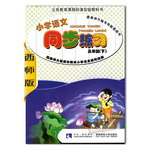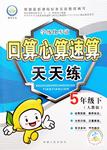
A university is not just about careers and getting a well-paid job after graduation — it’s a place for learning about yourself and the world.
So how to select a suitable university is of great importance. How do you decide on a school when there are thousands of them to pick from? Start by asking yourself questions about your preferences:
What are my strengths?
1.Am I interested in liberal arts or science or business?
2.What kind of learning environment is best for me?
3.Would I be more comfortable in a small school or a large one?
4.Do I want to stay close to home or live far away?
5.Would I prefer to be in a city environment or a small college town?
6.Do I like being with people who are mostly like me or do I want to meet a different group?
Ask friends and older people who are in college about their schools and about other schools they’re familiar with. Talk to one of your teachers and go to college fairs when they visit your town.
Once you’ve narrowed down your choices, ask the schools to send you related materials and visit their websites. When you’ve cut your list down to a manageable number, make arrangements to visit. Try to do this when the schools are having regular classes, so you can get a good idea of what life is really like on campus.
And remember: you’re not the only one making a decision. Schools are picking from a large pool of students. They want to know how excellent you are and what makes you stand out from everyone else. They will look at your school performance, test scores, and so on, so it’s important to devote time and effort to all these things.
According to the passage, when deciding on a college you need NOT consider ______.
A. in which aspect you are superior to others
B. what kind of people you’d like to meet
C. what kind of college environment you like
D. whether the college has an exchange-student program
When you have got a manageable number of choices, you’d better _______.
A. visit the schools when they have regular classes
B. ask the schools to send you related materials
C. go to college fairs with your friends
D. discuss them with your teachers
The underlined part in the last paragraph means that ______.
A. you can’t make the decision all by yourself
B. schools are also judging whether you’re qualified for them
C. your school grades often play a role in choosing a college
D. making a decision all by yourself is really hard
【小题1】D
【小题2】A
【小题3】B
本文就怎样申请进入一个理想的大学提出了一些建议和意见。
【小题1】理解文中具体信息。根据文章第二段关于选择大学时需要考虑的因素可知,这些因素中不包括大学里是否有交换生这个项目,故答案为D。
【小题2】理解文中具体信息。根据第四段Try to do this when the schools are having regular classes … 可知,答案为A。
【小题3】根据上下文推测句子隐含的意思。根据最后一段They want to know how excellent you are and what makes you stand out from everyone else可推测,答案为B。


 同步练习河南大学出版社系列答案
同步练习河南大学出版社系列答案 同步练习西南师范大学出版社系列答案
同步练习西南师范大学出版社系列答案 补充习题江苏系列答案
补充习题江苏系列答案 学练快车道口算心算速算天天练系列答案
学练快车道口算心算速算天天练系列答案科目:高中英语 来源: 题型:053
This week, we talk about the application process for American colleges and universi-ties. This is part eight in our Foreign Student Series. Earlier, we explained how to begin a search for schools by going to one of the American educational advising centers around the world. We also discussed the rules for entering the United States. And we talked about programs that can be completed on-line.
But if your goal is to come to the United States to study, then it is time to make a list of colleges or universities that interest you.Be sure to choose more than one. Directors of foreign students admissions say students should apply to at least three schools.
Some students want to attend a small college; others want to go to a big university.If a really big university appeals to you, then there are ones like Ohio State University.That university in Columbus, Ohio, in the Midwest, has almost 52 000 students. There are students this year from around one hun-dred fifty countries. Ohio State provides in-ternational students with an application on its website. You can pay the application charge online with a credit card. Or you can print the forms and mail them with the pay-ment.
Many colleges and universities have their applications and also their catalogs on-line. A catalog is the publication in which a school tells about its programs. You should start on your applications at least two years before you want to begin studies. Completing a college application can take some time. But answering all the questions is not enough.Another important step is taking admission tests. The SAT is the college entry test that American high school students most com-monly take. Another one is the ACT. Colle-ges and universities may also require interna-tional students discussing these tests next week.
(1) This passage mainly tells us about________.
[ ]
A.how to apply for American colleges and universities
B.how to begin a search for a school in the United States
C.a series of programs for foreign students into America
D.the rules for foreign students to enter the United States
(2) From this passage we can infer that_______
[ ]
A.many American students want to study abroad
B.Foreign Student Series has lasted for weeks
C.less and less American universities will admit foreign students
D.the process of applying to American big universities is more complicated
(3) The writer mentions the Ohio State Uni-versity so as to________.
[ ]
A.recommend foreign students to apply for the university
B.offer some steps for entering the uni-versity
C.explain how to apply for American big universities
D.explain how big the university really is
(4) If a Chinese student wants to study in the United States, he/she may take the fol-lowing tests EXCEPT________.
[ ]
A.SAT
B.ACT
C.TOEFL
D.HSK
查看答案和解析>>
科目:高中英语 来源:江西省南昌市2012届高三下学期第一次模拟测试卷英语试题 题型:050
| |||||||||||||||||||||||||||||||||||||||||||||||||||||||||||||||||||||||||
查看答案和解析>>
科目:高中英语 来源:2012届江西省新干二中高三下学期第一次夜模考试英语试卷(带解析) 题型:阅读理解
In a few years,you might be able to speak Chinese,Korean,Japanese,French,and English-and all at the same time. This sounds incredible,but Alex Waibel,a computer science professor at US's Car-negie Mellon University (CMU) and Germany's University of Karlsruhe,announced last week that it may soon be reality. He and his team have invented software and hardware that could make it far easier for people who speak different languages to understand each other.
One application,called Lecture Translation,can easily translate a speech from one language into an-other. Current translation technologies typically limit speakers to certain topics or a limited vocabulary. Us-ers also have to be trained how to use the programme.
Another machine can send translations of a speech to different listeners depending on what languagethey speak. “It is like having a simultaneous translator right next to you but without disturbing the person next to you,”Waibel said
Prefer to read? So- called Translation Glasses transcribe(转录) the translations on a tiny liquid-crystal display(LCD) screen.
Then there's the Muscle Translator. Electrodes capture the electrical signals from facial muscle movements made naturally when a person is mouthing words. The signals are then translated into speech.The electrodes could be replaced with wireless chips implanted in a person's face,according to research-ers.
During a demonstration held last Thursday in CMU's Pittsburgh campus,a Chinese student named Sang Jun had 11 tiny electrodes attached to the muscles of his cheeks,neck and throat. Then he mouthed-without speaking aloud- a few words in Mandarin(普通话) to the audience. A few seconds later,the phrase was displayed on a computer screen and spoken out by the computer in English and Spanish: “Let me introduce our new prototype.”
This particular instrument,when fully developed,might allow anyone to speak in any number of lan-guages or,as Waibel put it,“to switch your mouth to a foreign language”. “The idea behind the universi-ty's prototypes is to create'good enough' bridges for cross- cultural exchanges that are becoming more common in the world,”Waibel said.
With spontaneous(自发的) translators,foreign drivers in Germany could listen to traffic warnings on the radio; tourists in China could read all the signs and talk with local people;leaders of different coun-tries could have secret talks without any interpreters there.
【小题1】What can't be learned from the text?
| A.The spontaneous translators will help us a lot. |
| B.There is no Muscle Translator in the world now. |
| C.Muscle Translators can translate what you think into speech if you just move your mouth. |
| D.A lecture translation can translate what you said into other languages easily. |
| A.happening at at the same time. | B.happening by itself. |
| C.similar in size. | D.Similar in quality. |
| A.To make cultural exchanges between different countries easier. |
| B.To help students learn foreign languages more easily. |
| C.To make people live in foreign countries more comfortably. |
| D.To help people learn more foreign languages in the future. |
| A.The translator is so good that it can translate any language into the very language you need. |
| B.The translator is becoming more and more common in the world as a bridge. |
| C.With the help of the translator,you only need to open your mouth when you want to say something without saying the exact words at all. |
| D.The translator needs to be improved before being put into market. |
| A.A newspaper. | B.A magazine on science. |
| C.A fairy tale. | D.A scientific fantasy book. |
查看答案和解析>>
科目:高中英语 来源:江西省模拟题 题型:阅读理解
查看答案和解析>>
科目:高中英语 来源: 题型:阅读理解
In a few years,you might be able to speak Chinese,Korean,Japanese,French,and English-andall at the same time. This sounds incredible,but Alex Waibel,a computer science professor at US's Car-negie Mellon University (CMU) and Germany's University of Karlsruhe,announced last week that it may soon be reality. He and his team have invented software and hardware that could make it far easier forpeople who speak different languages to understand each other.
One application,called Lecture Translation,can easily translate a speech from one language into an-other. Current translation technologies typically limit speakers to certain topics or a limited vocabulary. Us-ers also have to be trained how to use the programme.
Another machine can send translations of a speech to different listeners depending on what languagethey speak. “It is like having a simultaneous translator right next to you but without disturbing the person next to you,”Waibel said
Prefer to read? So- called Translation Glasses transcribe(转录) the translations on a tiny liquid-crystal display(LCD) screen.
Then there's the Muscle Translator. Electrodes capture the electrical signals from facial muscle movements made naturally when a person is mouthing words. The signals are then translated into speech.The electrodes could be replaced with wireless chips implanted in a person's face,according to research-ers.
During a demonstration held last Thursday in CMU's Pittsburgh campus,a Chinese student named Sang Jun had 11 tiny electrodes attached to the muscles of his cheeks,neck and throat. Then he mouthed-without speaking aloud- a few words in Mandarin(普通话) to the audience. A few seconds later,the phrase was displayed on a computer screen and spoken out by the computer in English and Spanish: “Let me introduce our new prototype.”
This particular instrument,when fully developed,might allow anyone to speak in any number of lan-guages or,as Waibel put it,“to switch your mouth to a foreign language”. “The idea behind the universi-ty's prototypes is to create'good enough' bridges for cross- cultural exchanges that are becoming more common in the world,”Waibel said.
With spontaneous(自发的) translators,foreign drivers in Germany could listen to traffic warnings on the radio; tourists in China could read all the signs and talk with local people;leaders of different coun-tries could have secret talks without any interpreters there.
71.What can't be learned from the text?
A.The spontaneous translators will help us a lot.
B. There is no Muscle Translator in the world now.
C. Muscle Translators can translate what you think into speech if you just move your mouth.
D. A lecture translation can translate what you said into other languages easily.
72. What does the underlined word mean?
A. happening at the same time. B. happening by itself.
C. similar in size. D. Similar in quality.
73.What's the final destination of inventing the language translators?
A. To make cultural exchanges between different countries easier.
B. To help students learn foreign languages more easily.
C. To make people live in foreign countries more comfortably.
D. To help people learn more foreign languages in the future.
74. What can be inferred from the seventh paragraph?
A. The translator is so good that it can translate any language into the very language you need.
B. The translator is becoming more and more common in the world as a bridge.
C. With the help of the translator,you only need to open your mouth when you want to say something without saying the exact words at all.
D.The translator needs to be improved before being put into market.
75. Where can we probably find this passage?
A.A newspaper. B.A magazine on science.
C .A fairy tale. D. A scientific fantasy book.
查看答案和解析>>
湖北省互联网违法和不良信息举报平台 | 网上有害信息举报专区 | 电信诈骗举报专区 | 涉历史虚无主义有害信息举报专区 | 涉企侵权举报专区
违法和不良信息举报电话:027-86699610 举报邮箱:58377363@163.com